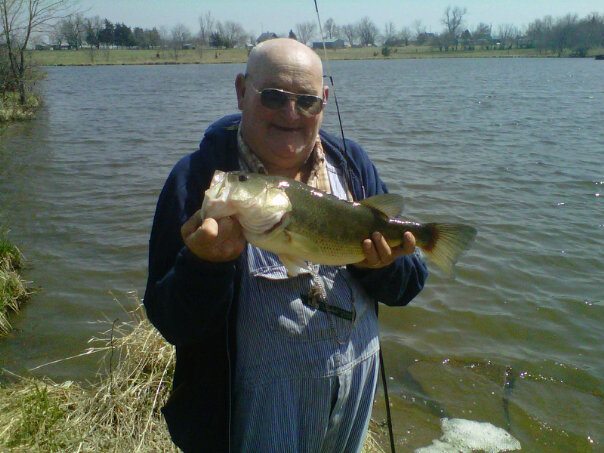“A soldier will fight long and hard for a bit of colored ribbon.” – Napoleon Bonaparte
Welcome to the Christmas Corps. Some of you volunteered for this mission, some were drafted by fate or dumb luck. But here we are, joined by our solitary missions to bring Christmas to our loved ones. There was stress, there may have been tears. After all, you are given only a month to do what a jolly fat man can only pull off with a crack team of elves and a herd of reindeer in a year. But on the morning of December 25th, you, the true Yuletide heroes, reaped the glories of the Jingle Bells battle. You were mercantile marines, shopping soldiers and you performed bravely.
Being a father, I have found Christmas to be a sometimes complicated, sometimes demanding duty. I started early this year, picking up toys out of clearance end caps in October, breaking the normal industry standard of no shopping before Black Friday, yet somehow, still found myself shopping in the waning days before I would eat all the cookies and blame in on a fat man in a red suit.
In the preparatory week prior to Christmas, I struggled with ribbon and paper, trying to figure out how to wrap packages that had no apparent adherence to any geometrical figure I ever learned in my public school education. Maybe they teach you what shape a Happy Napper dragon is to packaged in during private school, but in my world, I slap a bow on it and set it under the tree.
I wondered to myself how I would explain to the emergency room doctor that I managed to severe my index finger with a pair of kitchen shears, the only cutting instrument I could find, and wondered it once again as I attempted to cut Snoopy wrapping paper with a rusty pocket knife. Instead, I threw caution to the wind, avoiding sharp blades and tetanus by suffering a cut from a cardboard box.
After the cursing calmed, I found myself shocked by the amount of blood that can come from a finger and wondered if anyone had ever had a paper cut that required stitches. I forgo the indignity of switching the wrapping paper that I had just bled on and tape it up. That particular Lego set has plastic wrapping, screw it.
As a former art major, I was shocked and dismayed to find that the hands that could sculpt a face out of clay couldn’t figure out how to wrap a pirate hat with Transformer paper and make it look like anything but a festively paper mached pirate hat.
The morning of the grand opening, so to speak, I am excited by the light in my son’s eyes as he begins tearing paper from packages revealing the childhood treasures contained within. I am certain I am the best father in the history of fathers, right up until he gives me the Hot Wheels semi-truck and wants it opened. I send him off to tear apart more of my hours of literal blood and sweat, while I search for a screwdriver.
Pandora’s box is not as secure as a Hot Wheels semi. I try to make sense of the diagrams telling me I need to break tab A, then turn the screw left while the pile of toys to be opened grows beside me. I eventually defeat the security measures taken by the Matel Corporation and then move on to the next gift.
I’m not sure when a Construction Management degree became necessary to follow the blueprint instructions for putting a Pirates of the Caribbean play set together, but I quickly realized my English-based education has left me unprepared for following the instructional drawings. I fell back on winging it, shoving pieces together that seem to match until I made something that closely resembles what I saw in the picture on the box.
In my brilliance, I had decided what my four year-old really needed was Lego blocks. We could build things together. He could learn creativity and the joy of making something yourself. It would be awesome. It turns out, the downside of Legos is that my son would like me to build everything the right way first. There I sat with a grand total of nearly three thousand pieces of Legos from seven different sets, spending hour upon hour building, knowing that as soon as they are finished, he will tear them apart and mix the pieces together inside his Lego box. But still, I do it with a smile.
It was already bed time. Light turned to night and bed time was fast approaching. I looked at the pile of packaging. I felt sorry for the guys on the sanitation crew this week. I was somewhat annoyed how large the pile of trash was compared to the pile of toys. What a waste. It was enough to make Green Peace cry. It would be a hell of a mess to clean up.
I sat back on the couch and watched my son. He wore the Jack Sparrow hat, and searched for buried treasure with a Happy Napper dragon and a plush Yoda. The Lego Hero Factory characters scaled the side of Queen Anne’s Revenge, and battled a robot from Mars for control. My son’s little voice was hoarse from an entire day of excitement, always talking, always full of love for everything.
There was a light in his eyes, pure and radiant that had stayed sparking since the first gift was opened.
I rejoiced in this year’s victory. The Christmas mission had been completed, and was a resounding success. It could not have been more worth it.




